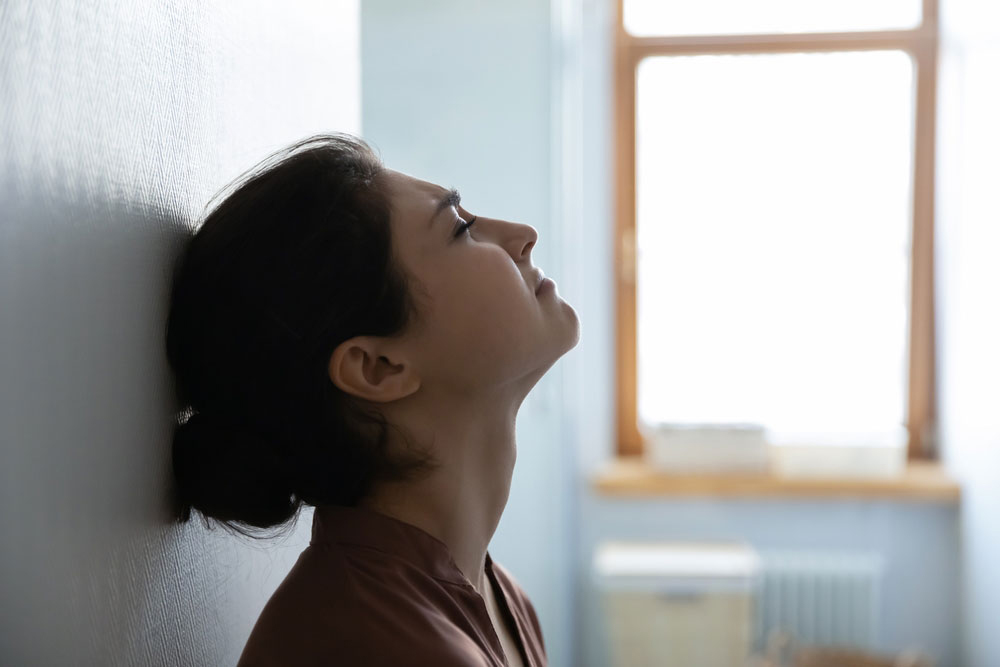Though grief is a natural, human response to loss, our culture often prioritizes productivity over pain, expecting many women to push through heartbreak without processing it. Grief Awareness Day on Aug. 30 serves as a powerful reminder that healing takes time and patience.
Rising Roads Recovery holds space for women dealing with all forms of grief, whether it stems from death, betrayal, bullying, adoption or the identity shift that accompanies addiction recovery. Understanding how grief uniquely impacts women is integral to our trauma-informed approach to healing.
Understanding Grief Symptoms
Grief Awareness Day is a rare opportunity to acknowledge the emotional weight of loss and combat the stigma surrounding it. Many women feel pressure to move on quickly or hide their pain to avoid making others uncomfortable. But grief is not something to fix or escape. As love in its most vulnerable form, it’s something to honor and gently work through.
Symptoms like these may come in waves, change over time or reemerge unexpectedly – even long after a loss has occurred. Grief doesn’t follow a set timeline, and there’s no “right” or “wrong” way to get through it.
- Emotional: Sadness, anger, guilt, irritability, numbness, hopelessness
- Cognitive: Difficulty concentrating, forgetfulness, indecisiveness, intrusive thoughts
- Physical: Fatigue, headaches, changes in appetite, chest tightness, insomnia
- Behavioral: Withdrawal from others, restlessness, crying spells, neglecting self-care
- Spiritual: Questioning your faith, feeling disconnected, searching for meaning
Why Women Experience Grief Differently
While grief is universal, women often carry it differently due to cultural expectations, hormonal factors and emotional labor dynamics. Women are more likely to:
- Be the emotional anchor in families and friendships
- Suppress their feelings to be there for others
- Mourn in silence
- Experience judgment for expressing “too much” or “too little” emotion
- Internalize blame or shame related to the loss
Additionally, women who’ve experienced trauma, abuse, infertility, miscarriage or addiction often carry layers of unresolved, unvalidated grief. In these cases, your mourning may manifest as depression, anxiety, dissociation or self-destructive behaviors.
When Grief Becomes Complicated
Grief can turn into a more severe mental health concern when:
- It lasts longer than expected and doesn’t ease with time
- You feel stuck, numb or unable to move forward
- You begin to lose interest in daily life or isolate from others
- You engage in unhealthy coping mechanisms like substance use or self-harm
- You experience suicidal thoughts or overwhelming hopelessness
Prolonged grief disorder frequently co-occurs with conditions like PTSD, depression or addiction. Professional treatment is essential in these cases.
Creating Space to Grieve at Rising Roads Recovery
Grief can stem from many sources, including loss of a relationship, identity, dream or sense of safety. Rising Roads Recovery provides a safe, women-only environment that honors what you’ve been through.
Our program offers:
- Individual and group counseling for grief and loss
- Support for co-occurring disorders like depression, trauma and substance use
- Somatic and expressive therapies to process grief in the body, not just the mind
- A compassionate community of women who understand the complexity of loss
This Grief Awareness Day, give yourself permission to mourn what you’ve lost – whether it’s a person, a job or a former version of yourself. We’re here for you through every stage of healing – from heartbreak to hope.

